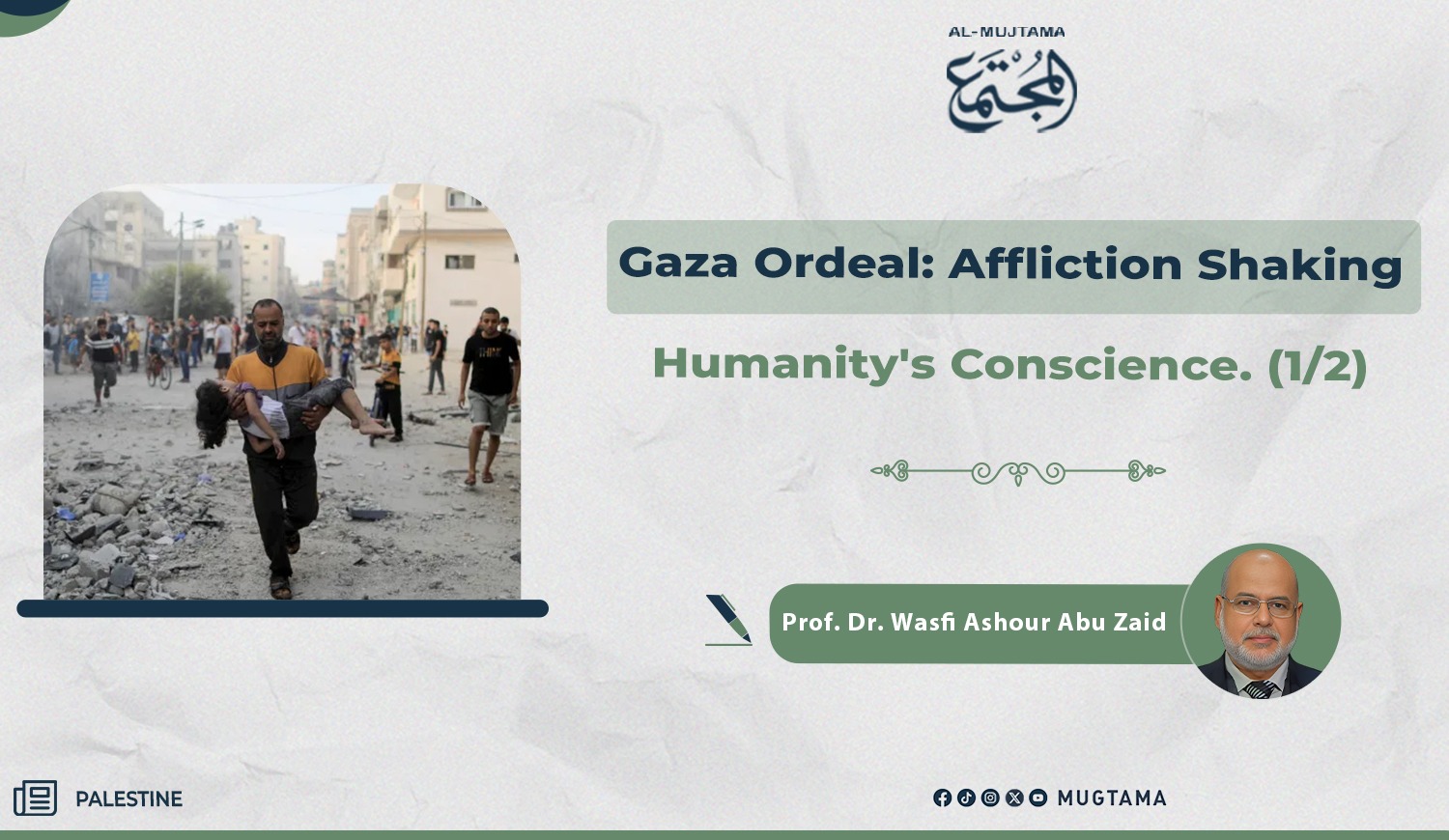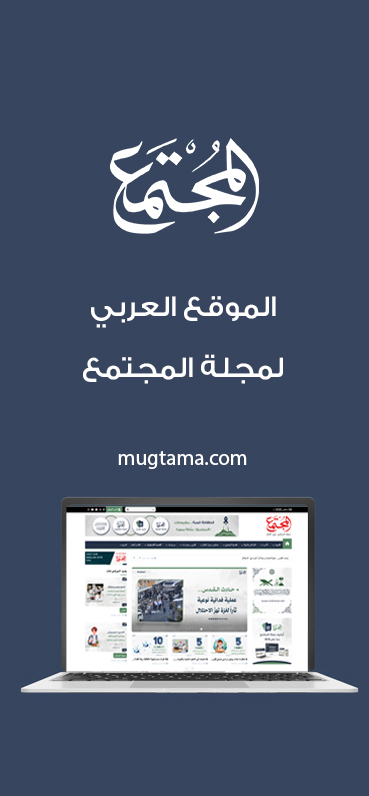The State of the Quake and Gaza: The Great Trial that Shakes the Conscience of Humanity (1/2)

The Qur’anic Introduction: The Threshold of “the Quake”
There are moments in a
person's life when they feel as if the ground has been pulled from beneath
their feet, wishing the earth would swallow them or that their mother had never
given birth to them. They might say, "Oh, if only I had died before this
and was a forgotten thing, forgotten completely." Words tremble on their
tongue, meanings become jumbled in their mind, and their chest tightens,
leaving them unable to speak
The
Qur’an encapsulated this state in a single, comprehensive word: the Quake—not
merely the shaking of the earth, but the trembling of the entire human soul
under the weight of trial. As Allah, the Exalted, says: ] Do you suppose that you will enter the Garden without first
having suffered like those before you? They were afflicted by misfortune and
hardship, and they were so shaken that even [their] messenger and the believers
with him cried, ‘When will God’s help arrive?’ Truly, God’s help is near.[ ]
Al-Baqarah[
This noble verse outlines two profound horizons:
1. The
horizon of truth: Faith is a gift from heaven, yet it is tested on earth. It begins as
words, then becomes a state of being, and it reaches completion only through
paying the great price and offering noble sacrifices.
2. The
horizon of the journey: This trial is not an individual matter, but the destiny of everyone who
has walked the path of the prophets. The “quake” is the peak of the test—the
gate that must be knocked on before the doors of victory open. For there can be
no triumph or empowerment without passing through the experience!
And
there is no harshness in the verse, but rather mercy and guidance. It teaches
that the quake is not a severance, but an awakening that brings the believer
back to his weakness and incapacity—so that he may realize there is no refuge
from Allah except in Him. The question “When will the help of Allah come?”
does not arise from mere impatience or weariness, but from a heart on the verge
of breaking under the weight of trial, turning its question into supplication
and earnest entreaty to Him in Whose Hand are the dominions of the heavens and
the earth—He who says to a thing “Be,” and it is!
And
the “quake” also refines the consciousness of the community, shaking the heart
of the Ummah to reveal: How far can it endure? With whom does it align? And
what price is it prepared to pay? Thus, the Qur’anic meaning does not stop at
the bounds of the individual, but extends to the awareness of the nation and
its history. The “quake” is not merely a word upon the tongue, but a school
that graduates generations of patient, steadfast witnesses—where patience is
tested, testimony is built, and resolve is fortified.
That
is why the verse concludes with the promise: “Indeed, the help of Allah is near.” Near—not in terms of
time and distance, but in the truthfulness of stance and the uprightness of the
path; near, because the prayer of the oppressed is never rejected; near,
because falsehood has but a limited lifespan, while truth has an enduring
horizon.
Gaza embodies the very state of “the quake”: hunger, siege, displacement, and annihilation.
Gaza
is not merely the name of a city; it is a bleeding mirror reflecting a divine
trial that shakes the very conscience of humanity. What is happening there
today is the truest manifestation of the Qur’anic meaning of “the quake”—where
word meets fire, meaning meets blood, and exegesis meets reality. The people of
Gaza have reached a level of hunger unprecedented in modern Palestinian
history. Reports from the World Food Programme indicate that more than 90% of
the population suffers from acute food insecurity, and half of the children under
five are at risk of severe malnutrition, according to UNICEF. Yet hunger here
is not a statistic in a report; it is the cry of a child who finds no drop of
milk in his mother’s embrace, and the anguish of a father burying his little
one because he could not find him a morsel of bread.
As
for water—the very spirit of life—it has become in Gaza more precious than
gold. The World Health Organization reports that the daily share of water per
person does not exceed 3 liters, while the minimum requirement for a dignified
life is 50 liters. This is not merely a statistical deficit, but the image of a
mother holding the parched hand of her thirsty child, searching for a drop of
water—only to find none.
And
if hunger and thirst exhaust the body, the siege besieges the soul. More than
2.3 million people are crammed into the narrowest strip of land on earth—hemmed
in by the sea on one side, the wall on the other, and the sky above them filled
with drones. Hospitals are bombed, mosques are demolished, universities are destroyed,
and schools are turned into graveyards for knowledge and childhood. The United
Nations documents that more than 500 schools and educational institutions have
either been completely destroyed or rendered unusable.
Steadfastness in the Face of Displacement and Genocide
Forced
displacement is another chapter of the tragedy. The United Nations Office for
the Coordination of Humanitarian Affairs confirms that more than 1.7 million
people have been uprooted from their homes. A child leaves with his mother in
the morning, never to return home again. An old man bids farewell to a mosque
in which he prayed for fifty years, only to see it bombed before his very eyes.
Displacement is not merely a physical relocation, but an uprooting of memory,
identity, and future.
Then
comes the greatest calamity: collective annihilation. The Ministry of Health in
Gaza records more than 60,000 martyrs, half of them women and children. The
International Federation of Journalists announces that more than one hundred
journalists have been killed—those who, under international law, are supposed
to be protected. Gaza is no longer a battlefield, but a stage of genocide,
documented with numbers and names.
And
yet, the people of Gaza stand firm. A child raises his tiny finger and
whispers, “Allahu Akbar.” A woman picks up a stone from the rubble to
tell the world, “We will not break.” An old man sits at the gate of a
demolished mosque, reciting the Qur’an with a trembling yet unwavering voice.
They have reached the utmost degree of the quake, but have chosen to transform
the trembling of hearts into steadfastness of stance.
Today,
Gaza is not merely a geography, but a living exegesis of the noble verse: their
hunger holds our fullness accountable, their thirst condemns our silence, their
displacement exposes our frailty, and their martyrdom places us before the
question of history and conscience: When? When will we rise? When will we
say to oppression, “Enough”? When will we prove that humanity is still alive?
The silence
and betrayal of the world: a test for the Ummah and the Western empires.
As
the bodies of children fall in Gaza and blood flows through the alleys, a
silence heavier than smoke and more crushing than siege engulfs the world. The
greatest quake of our time is not the roar of bombs alone, but the roar of
global silence—complicit with the killers and betraying the oppressed.
The
silence of the Islamic Ummah: The hearts of Muslims should have trembled with
every cry from Gaza, yet many capitals showed nothing but a cold indifference
that evokes sorrow. Many leaders sufficed with statements of “concern” and
“regret,” while women and children died of thirst, hunger, and bombardment. The
crossings were closed in the faces of the wounded, and trucks laden with
medicine and food piled up at the borders for days on end. It was a cold
betrayal, recorded by the pages of history not as a passing incident, but as a
deep wound in the body of the Ummah—one titled: “A brother betrayed his
brother.”
Western
double standards: As for the West, which never ceases to boast of human rights
and democracy, it has revealed its ugliest face. The United States did not stop
at political support, but showered Israel with billions in weapons and
ammunition. Pentagon reports indicate that military aid in a single year
exceeded 14 billion dollars—meaning that every shell that fell on a home in
Gaza bore Washington’s seal.
And
Europe, which rose in defense of Ukraine, colluded with silence in Gaza—or hid
behind pretexts of security and self-defense. In Berlin, Paris, and London,
pro-Palestine demonstrations were suppressed, while Israel’s war machine was
left to ravage the bodies of innocents. Thus emerged the stark reality of
double standards—where Palestinian blood is never seen with the same worth as the
blood of others.
The failure of international organizations: The United Nations
convened time and again, yet every resolution calling for a ceasefire was
strangled by the American veto. The International Court of Justice opened the
genocide file, but justice there moves at a pace that kills the conscience
before it saves the victims. And while the international community dragged its
feet, each passing day swallowed dozens of martyrs and added a new line to the
ledger of crime.
The
UN Secretary-General said: “Gaza has become a graveyard.” And indeed, it
is a graveyard—not only for the innocent, but for humanity itself, for
international law, and for the lofty slogans long raised about freedom and
dignity.
The
face of betrayal: The aggression was not Israel’s crime alone, but was shared
by all who extended it a hand of support, or cloaked its crime with hollow
justifications. History does not distinguish between the explicit killer and
the silent conspirator; in the scales of conscience, they are the same.
Thus,
Gaza today is besieged not only by Israel’s rockets, but also by the betrayal
of the near, the silence of the distant, and the hypocrisy of the so-called
civilized world. It is the greatest test: a test for the Ummah, which Divine
revelation has long called to brotherhood, and a test for the West, which
claimed universality in rights. Both have failed. Yet history has never failed
to record the truth—and it will write that Gaza was shaken but endured, while
hearts around it collapsed in the test of betrayal.
_________________________________________
You
may also like:
Massacre on Air: Israel Targets Journalists and Civilians at Nasser Medical Complex
Book Review (Our story with the Jews) (1/2)












